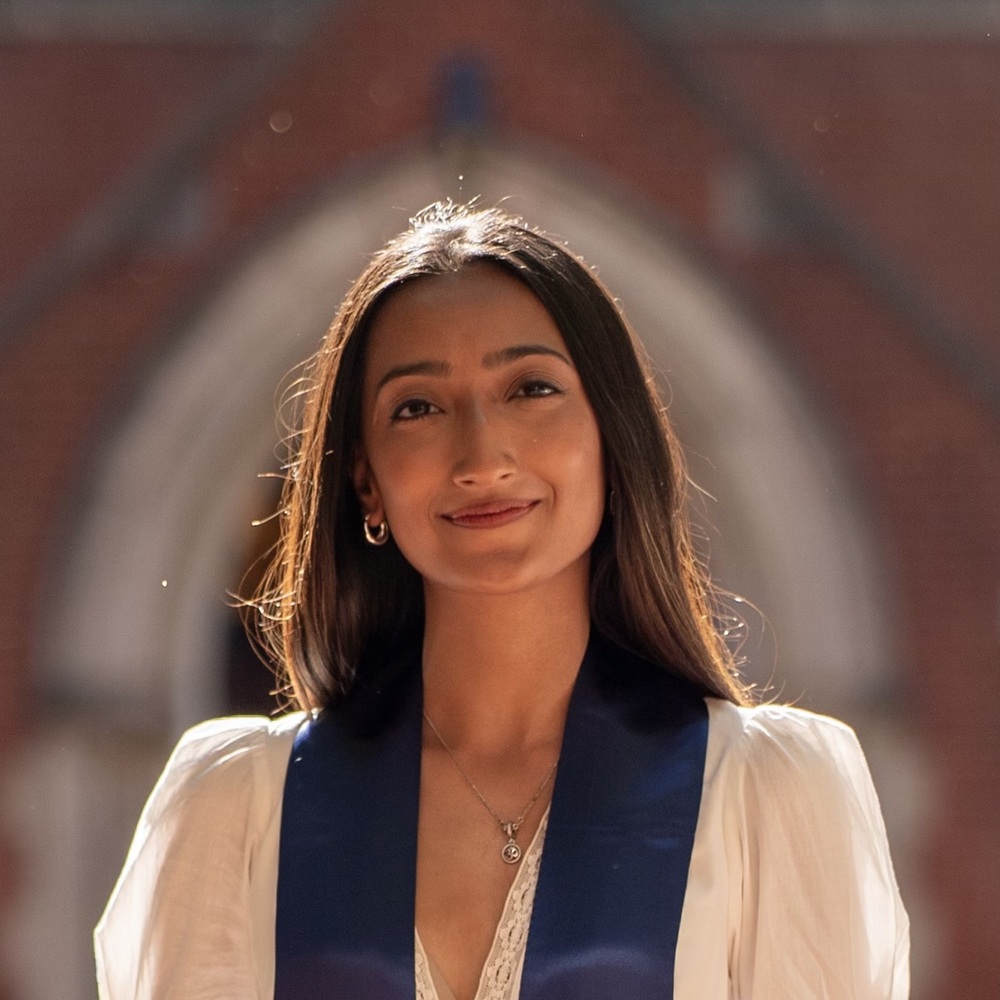
Shagun Gandhi
| Grant Category: | Fulbright-Nehru Student Research Program |
| Project Title: | Investigating Head and Neck Cancer Survivorship in India |
| Field of Study: | Psychology |
| Home Institution: | At-Large, Ashburn, VA |
| Host Institution: | Tata Memorial Centre, Mumbai, Maharashtra |
| Grant Start Month: | October 2025 |
| Duration of Grant: | Nine months |
Brief Bio:
Shagun Gandhi is a 2025 graduate of Georgetown University, where she earned her BSc in human science with a minor in disability studies. Her academic and professional interests lie at the intersection of oncology, public health, and psychosocial care. As a medical scribe at George Washington University’s Otolaryngology/Head and Neck Surgery Department, she works closely with surgeons, speech pathologists, and patients, which has deepened her understanding of the lived experience of head and neck cancer survivors. She is concurrently engaged in molecular genetics research at Georgetown, where she investigates DNA double-strand break repair mechanisms that contribute to genome instability and cancer. Her work contributed to a peer-reviewed publication in PLOS Genetics.
Shagun was selected as a Laidlaw Scholar and a SMURF Fellow through which she conducted independent research, mentored younger scholars, and presented findings at national conferences. Her leadership also extended to service initiatives, including her role as president of the Georgetown University Oncology Patient Support (GU-OPS) group, which works to improve the quality of life of patients at the Lombardi Comprehensive Cancer Center. These experiences allowed her to develop expertise in both qualitative and quantitative research methodologies, as well as gave her a multidimensional perspective on cancer care delivery.
Her broader interests include global oncology, disability advocacy, and medical humanities. She is passionate about building bridges between clinical medicine and research, with the ultimate goal of becoming a physician-scientist dedicated to improving survivorship outcomes for underserved populations.
Shagun’s Fulbright-Nehru research project is investigating the psychosocial experiences of head and neck cancer survivors in India. Partnering with the Tata Memorial Centre in Mumbai and the Government Cancer Hospital in Chhatrapati Sambhajinagar, Maharashtra, she is conducting focus group discussions and interviews with survivors to explore themes such as emotional well-being, social support, and barriers to rehabilitation. Using thematic analysis and the NVivo software, she aims to identify culturally specific survivorship needs and thus inform patient-centered care models. Her work will generate actionable insights for oncology providers and also contribute to the development of long-term psychosocial support frameworks for cancer survivors in India.